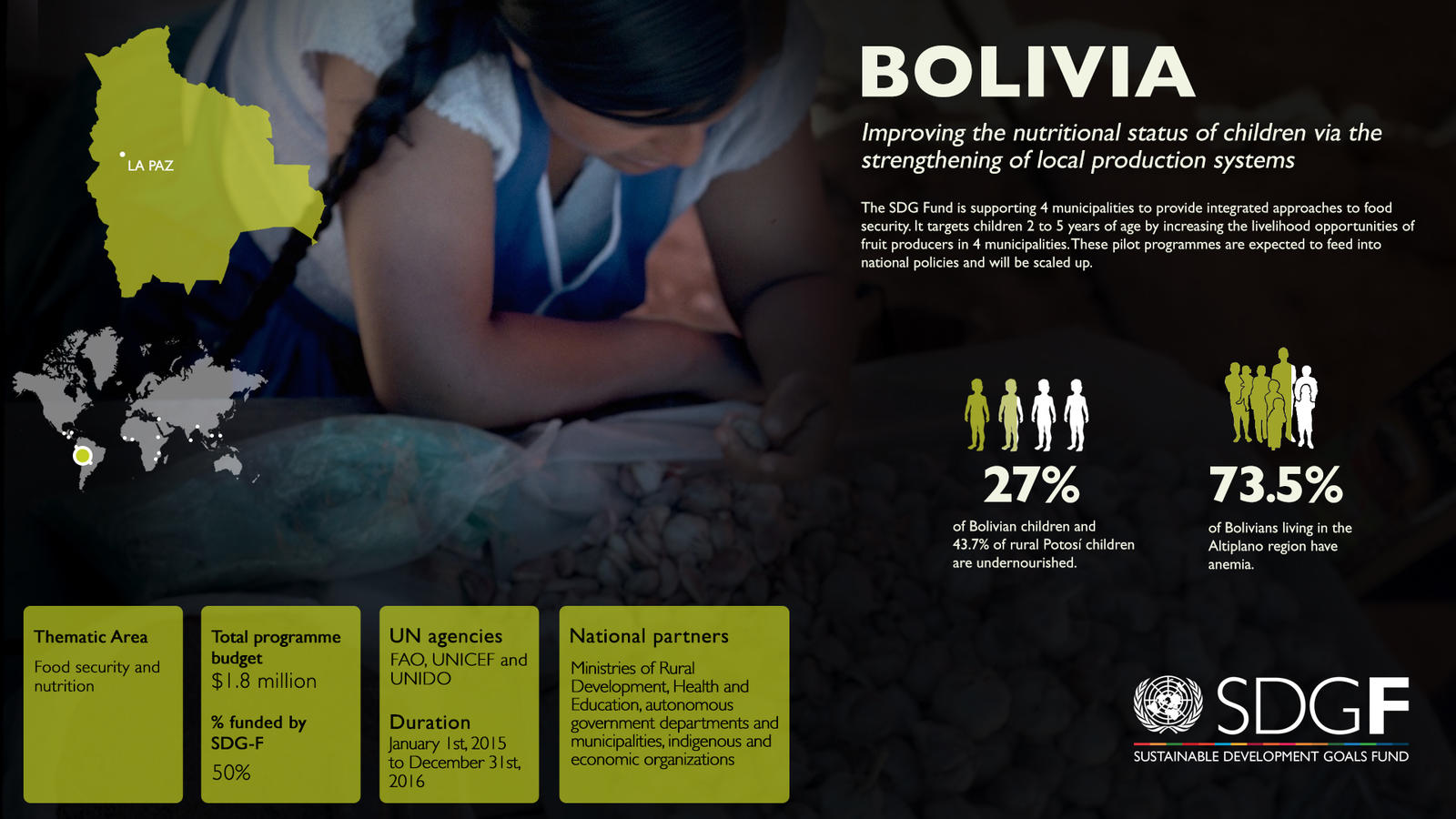September 6, 2016
Building our future step by step
By Rosse Mary Andia, in an interview with Sandra Villegas, communications officer at the Office of the UN Resident Coordinator in Bolivia.
Rosse Mary Andia –or Rosmery, as she is known in her hometown of Pocona- humbly welcomes me to her kitchen. She prepares a lovely dinner for the both of us, made with the produce that she grows in her backyard: chopped carots with onions, ground beef and fried rice. Absolutely delicious. During our time together, the Regional Executive of Valleys in the State of Pocona (Cochabamba, Bolivia) and producing partner of the SDG-F Joint Programme ‘Improving the nutritional status of children via the strengthening of local production systems’ tells me her story, an inspiring account of effort, self-worth and determination to get ahead. Here is what she said:
"I was born in Tiraque, in the state of Pocona, Cochabamba. I was one of twelve siblings, and life at home wasn’t easy. My father was very sexist, and that was the environment in which we grew up. I was shy, and did not socialize. When you are raised with fear, you hide from people. I barely went out and knew very little of other parts of Bolivia.
I got married as soon as I turned sixteen. I did it to escape the violence I lived at home. Soon I will be 34, which means I have been married for over 15 years now. In 2006 we moved to Spain with our three kids looking for better opportunities. It was there that I learned to be strong: working hard for my money, being far away from my country, family and friends, and overcoming incidences of contempt and racism by some people. Dealing with these situations made me decide to value myself more. And after returning to Bolivia, I went back to school.
My education at that time was basic. I had only gone through primary school. So I enrolled in Alternative Education, studying and working until I graduated in 2013. Until then, I spoke only Quechua, now I can write and read everything, from books and newspapers to legal documents.
This newfound confidence led me to become more involved in my community. In 2011, I became a member of the Confederation of Rural Women Bartolina Sisa, where I started to gain experience. Within six months, I was a trained member of the organization’s bases. I learned about politics and how to express my ideas. After that, I went to Congress and got elected with fifty percent of the votes, and I have been leading 24 agricultural unions for the past year and a half. Now I am proud to be a leader working for my community, even if it means working until 10 o’clock every night.
Last year we were approached by the UN’s Sustainable Development Goals Fund (SDG-F) Joint Programme in Bolivia. They told us that 27 percent of the children in our town, Pocona, were malnourished. I got worried, so we decided to come together to support this initiative. We started by working in seven communities, and now everyone wants to participate. They have seen the wonders we have achieved. The leadership workshops have been particularly helpful in organizing and guiding.
But this has also helped me. By participating in the program I gained skills in agricultural production using organic fertilizer, thanks to which I'm producing food in my garden without the use of chemicals. I have carrots, green beans, beets, broccoli, cauliflower, cabbage, cucumber, radish. I have also celery, parsley and carrot seeds.
Now, all of us dads and moms of Pocona plan to create a food processing plant. The program will support us with 40 percent of the investment, and the community organizers will provide the remaining 60 percent. With this initial investment we will be able to start producing food that we will sell at the local school breakfasts. Will produce vegetables and greens, we will cook paella and we will receive training to better nourish our children.
This is our story. We reached a point where we asked ourselves "Why can’t we improve our lives?." Now we are happy with the results and our children are eating healthier. I think we're moving forward.







